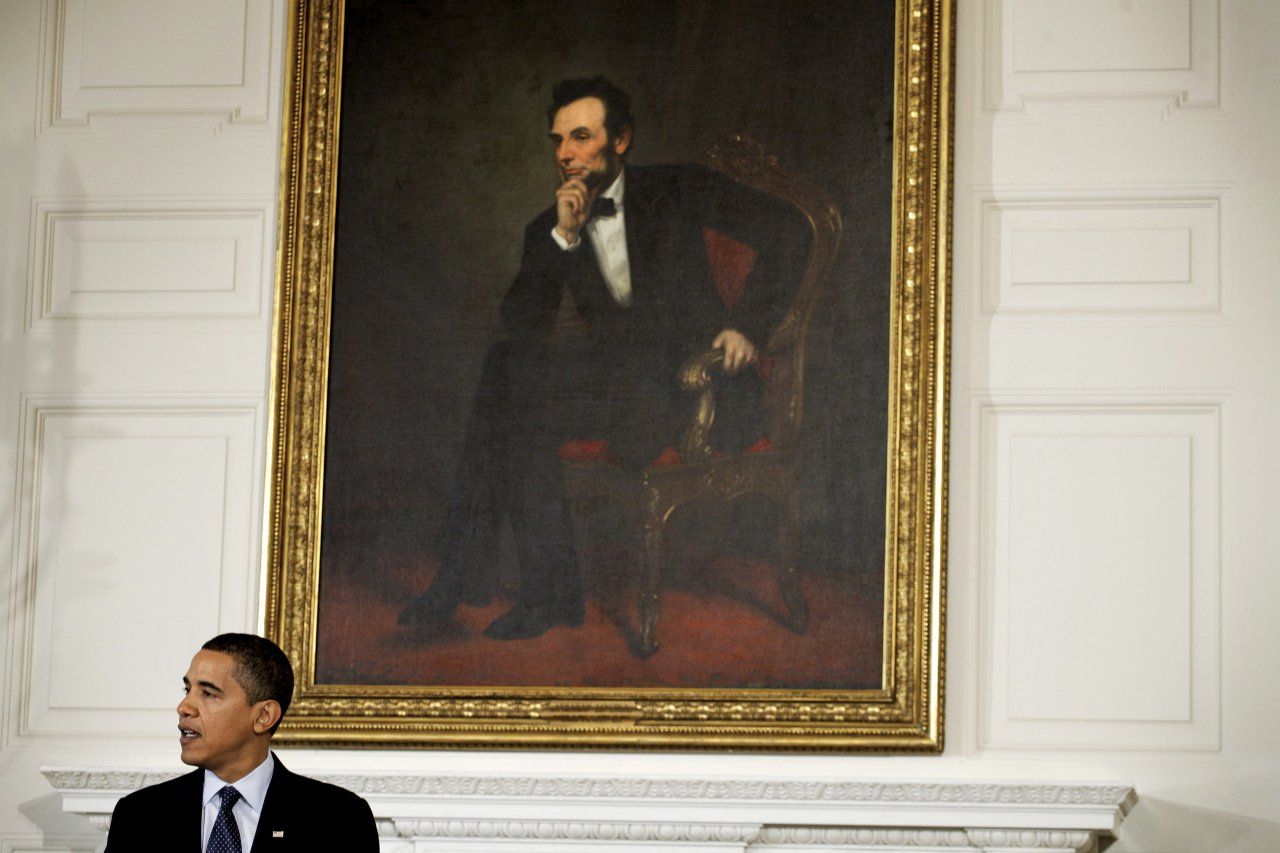
The late American historian John Morton Blum begins his book The Progressive Presidents by describing a political gathering on a hilltop in Ascutney, Vermont, in 1967. The people assembled there are not radicals, but liberals: "good burghers … respectable suburbanites." And they have come to oppose not merely the Vietnam War, but the toxin that lies beneath it: excessive presidential power.
Blum spends the rest of his book teasing out the irony: that once upon a time, to be an American liberal was to support "a strong presidency," the kind of presidency created by Theodore Roosevelt, Franklin Roosevelt, and Woodrow Wilson, the "progressive presidents" Blum admires.
Had Blum revisited his subject in 2007, he would have marveled at how well his thesis fared. By the late Bush years, people like the good liberals of Ascutney—now clutching lattes—were denouncing not merely the war in Iraq, but the new "imperial presidency" hatched in Dick Cheney's basement: the signing statements that altered the meaning of laws, the secret torture sites, the spying on Americans, the efforts to destroy critics of the war, the brazen lies. "George W. Bush has quipped several times during his political career that it would be so much easier to govern in a dictatorship," editorialized The New York Times in 2005. "Apparently he never told his vice president that this was a joke."
But today, the liberal admiration for presidential power that Blum memorialized is back. President Obama has claimed the right to kill American citizens involved in terrorism, and resisted subjecting his decisions to either congressional or judicial review. He's given recess appointments to nominees the Senate would not confirm even when the Senate was not technically in recess. He employed an exotic legislative maneuver to pass his health-care law and has used executive orders to institute many of the policy changes Congress would not enact. And he's become so resistant to media scrutiny that longtime ABC News White House reporter Ann Compton recently called "the president's [lack of] availability to the press ... a disgrace."
Through all this, mainstream liberal Democrats have mostly yawned. Liberals may not be thrilled about the drone program, but they trust Obama's judgment in a way they never trusted Bush's. And like progressives a century ago, they want a president strong enough to impose his will on a Congress that they consider reactionary, corrupt, and dismissive of the public will. During the Bush years, movies such as Syriana and the Bourne trilogy portrayed America's leaders as deceitful warmongers. But in the Obama era, Hollywood has rediscovered its faith in the Oval Office. Steven Spielberg's Lincoln is an ends-justify-the-means tale of a president who shades the truth and violates the letter of the law in order to achieve the greater good of outlawing slavery. The contemporary message is clear: Do what you have to do, President Obama. We trust you.
Would Blum be pleased? Partially, because as the progressives understood, it requires some concentration of presidential power to match the forces of concentrated wealth. But Blum would also know that, sooner or later, the liberal faith in presidential power will be betrayed, and the good people of Ascutney will rise again, probably not a moment too soon.
Uncommon Knowledge
Newsweek is committed to challenging conventional wisdom and finding connections in the search for common ground.
Newsweek is committed to challenging conventional wisdom and finding connections in the search for common ground.





